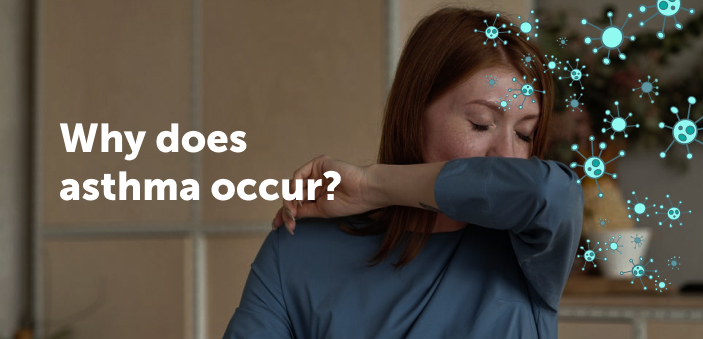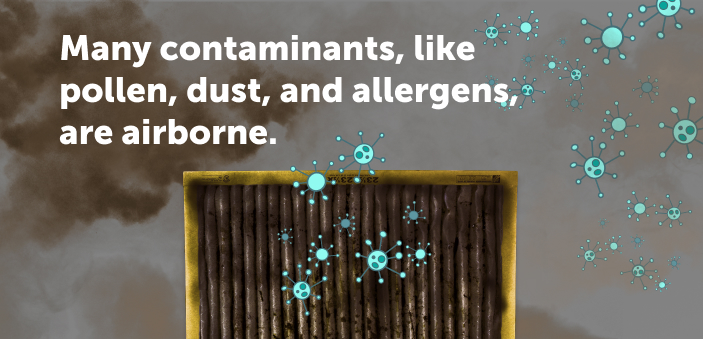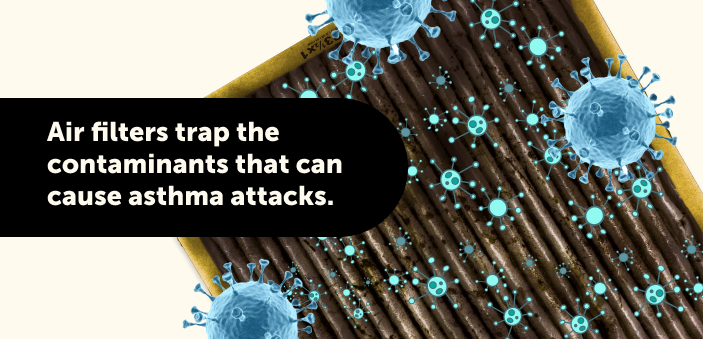Does air quality affect child asthma?
Asthma is an interesting condition. For most adults, it’s fairly harmless. This opens up a world of comedy at the expense of mild asthma victims (*nervously sucks inhaler*).
But some adults, and many children, can have more severe symptoms that need to be taken seriously. All it takes is one trigger, and asthma becomes no laughing matter.
Let’s examine what causes asthma from a physiological standpoint first. Then, we’ll talk about what can trigger it, and how. Finally, we’ll talk about how you can ease ongoing symptoms and control attacks.
Why does asthma occur?
Asthma is widely thought to be an autoimmune condition. Autoimmune diseases are fascinating because they are caused by your immune system - the very thing that also attempts to protect against it.
Autoimmune reactions are caused by your immune system fighting itself. In the case of asthma, it’s thought that a trigger causes your immune system to overreact and create a reaction to something that is either harmless, or not even there.
Asthma is caused by a swelling of the throat and an excess production of mucus. This makes breathing very difficult. An asthma attack is a severe version of this, where breathing is very obstructed.

In many cases, the reaction is made worse by the anxiety that often (understandably) accompanies having difficulty breathing. It’s the same concept behind drowning. Many people drown not because they have no chance of reaching the surface, but because they panic and suck in water, which accelerates the suffocation. (This is a fun article, huh?)
Interestingly, the theory that asthma is autoimmune is still largely debated. However, because of certain congruences between asthma and disorders that are certainly autoimmune (like type 1 diabetes), along with the fact that many asthma patients respond positively to autoimmune medications, the classification is largely accepted, and used in diagnosis and prescription.
What triggers asthma, and how?
Asthma has hundreds of triggers. It can vary widely depending on the person. For some people, a specific allergen causes the response. This can be anything from pollen to mold to peanuts.
For others, something as innocuous as cold weather can trigger an attack. Physical activity and emotional state, interestingly, are also triggers.
Medications can cause attacks as well. The bad news is that we don’t really understand asthma as a whole. The good news, however, is that on a case-by-case basis, we can at least pinpoint some specific and consistent triggers that can then be monitored and avoided.

Since Filter King is in the business of air quality, we’ll focus on the triggers that suspend themselves in air - pollen, allergens, and contaminants.
Children are especially susceptible to asthma, and their attacks can occur more often, with smaller triggers, and with more severity as a result.
An air contaminant causes an asthma episode by contacting the airway of the child and triggering the autoimmune response. The type of contaminant that creates the response depends largely on the person - their physiology, genetics, DNA and underlying conditions.
Luckily, all airborne contaminants are eliminated in largely the same manner - with filters. That’s our specialty.
How do I improve air quality to keep my children safer?
The type of filter you need for your house in order to combat child asthma will depend largely on your child’s specific triggers.
For allergens like pollen, lint, dust, pet dander, and mold, a lower quality filter will suffice. You’ll want to look for a MERV rating of at least 8. MERV stands for Minimum Efficiency Reporting Value. A higher MERV number will block more contaminants.
If your child is sensitive to smoke and emissions, you’ll want to shoot for a MERV rating of 11 or higher.
For bacterial triggers, a MERV rating of 13 or higher will be necessary.
Another thing to consider is the recent COVID-19 outbreak. Children and people with asthma are at a higher risk, so you can imagine the risk that children with asthma have in regards to the disease.

In order to block the novel coronavirus, you’ll want a filter with a MERV rating of 13 or higher. Although this level of filter will not block the COVID-19 virus particle itself, it will block the dust particles and moisture droplets that the particles need in order to travel.
Most asthma triggers are airborne contaminants, so installing a good air filter in your home is a great way to mitigate attacks. It’s also a good idea to try and limit the number of contaminants in your house in the first place. Consider taking off shoes and leaving them in a box outside of the house. Keep the box in a discreet place to deter thieves, of course. Doing this is a great way to control the amount of contaminants in your home, since many of them are tracked in on shoes.
Vacuum and dust your residence frequently. Carpets and curtains, in particular, serve as ideal collection points for particles and contaminants. Allowing these areas to build up can increase the frequency and severity of asthma symptoms.
If your child has their own play area, be sure to vacuum and dust in that room as often as possible, ideally every few days. Kids love to roll around on the ground, so you want that ground to be as clean as possible.
Once you’ve taken those precautions, you can head over to Filter King’s online store and find your correct size filter. If you look at your current filter, you should see the size along the side of it. Our store has virtually every size and kind of filter - get yourself a MERV 13+ in your size, remember to clean and vacuum regularly, and your child should feel some well-deserved relief from their symptoms.